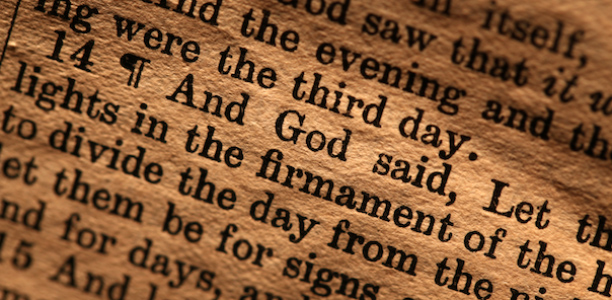By David Faust
 My friend Don died well. He didn’t die easily. I’m not sure anyone does. But Don died well.
My friend Don died well. He didn’t die easily. I’m not sure anyone does. But Don died well.
A couple of weeks before he died at age 82, we sat together in his room at the assisted living center and talked about what he wanted me to say at his funeral. He mentioned some Scriptures he wanted me to quote and hymns he wanted the congregation to sing, and he emphasized, “I don’t want you to focus on where I worked or volunteered.” Instead, he said, “Talk about Jesus and my walk with him. That’s who I am.”
The death of Moses, described in Deuteronomy 34, reminds us what it takes to die well. Moses died in fellowship with God, and he left a legacy for others to follow.
Living (and Dying) in Fellowship with God
“Then Moses climbed Mount Nebo from the plains of Moab to the top of Pisgah, across from Jericho” (Deuteronomy 34:1). As Moses neared death he still had the strength to climb a mountain! Even as death approached, God gave him the strength to keep climbing higher.
There on the mountain “the Lord showed him the whole land” (v. 1). Even though Moses didn’t get to walk on Canaan’s soil, God allowed him a glimpse of the place toward which he had led the Israelites for 40 years. While savoring that satisfying sight, Moses closed his eyes in death. He died as he had lived—in fellowship with God.
Like the rest of us, Moses wasn’t perfect. One time he angrily struck a rock, although God told him to speak to it (Numbers 20:1-13). As a result, the Lord allowed Moses to see the promised land but not physically enter it. If that seems like a harsh judgment, remember Moses was a lawgiver; and “whoever keeps the whole law and yet stumbles at just one point is guilty of breaking all of it” (James 2:10). We get to Heaven by God’s grace, not by our own good works.
Leaving a Legacy
The Bible states simply, “And Moses the servant of the Lord died there in Moab” (Deuteronomy 34:5). That’s a great way to be remembered—as “the servant of the Lord.” God himself took care of the funeral arrangements. “He buried him in Moab . . . but to this day no one knows where his grave is” (v. 6). Without knowing the exact location of the body, no one could turn Moses’ grave into a shrine or a place of idol worship. Moses was a great man, but the point of his life was to give glory to God, not to himself.
The Israelites spent a month grieving for Moses, “until the time of weeping and mourning was over” (v. 8). Tears were understandable, but soon it was time for Joshua and the rest of God’s people to carry on the work Moses had begun. While grief is a natural response to loss, we look forward to the glorious day when the time of weeping and mourning will be over (Revelation 21:4).
Moses left a legacy of obedient faith that continues long after he departed this earth. His example leads all of us to ask, “Despite my imperfections, has my life led others closer to the promised land?”
If the imperfect lawgiver Moses died well, the sinless grace-giver Jesus died even better. Because of Jesus’ resurrection, death has lost its sting and we, like Moses and my friend Don, can die well.
David Faust serves as the Associate Minister at East 91st Street Christian Church in Indianapolis, Indiana.
The Lookout’s Bible Reading Plan for March 29, 2015
Use this guide to read through the Bible in 12 months. Follow David Faust’s comments on the highlighted text in every issue of The Lookout.
Matthew 27:27-44
Romans 13
Psalm 68
Deuteronomy 22–26
Matthew 27:45-56
Romans 14
Psalm 69:1-18
Deuteronomy 27, 28
Matthew 27:57-66
Romans 15:1-13
Psalm 69:19-36
Deuteronomy 29–31
Matthew 28:1-10
Romans 15:14-33
Psalm 70
Deuteronomy 32
Matthew 28:11-20
Romans 16
Psalm 71
Deuteronomy 33, 34



Comments: no replies